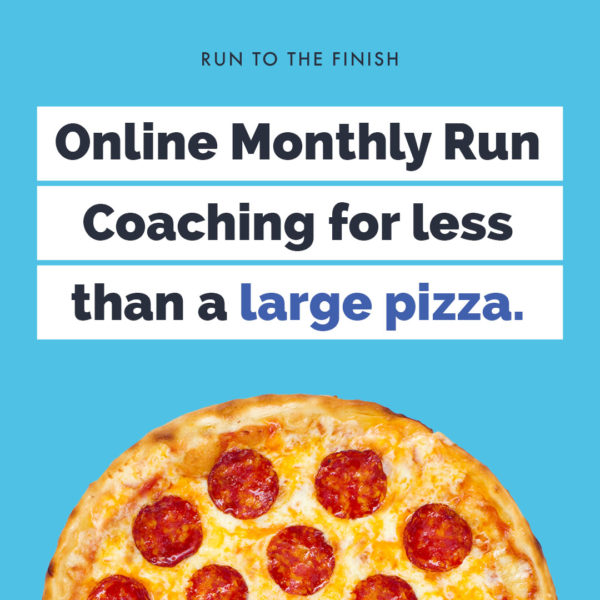26.2 does not simply require doubling up on mileage from half marathon training, it requires a whole lot more because your body needs so much more to remain, strong, healthy and injury free. These beginner marathon training tips will cover your bases.
As a seasoned running coach, I understand the excitement and trepidation that accompany the decision to undertake such a formidable task. Proper training is not just about crossing the finish line; it’s about cultivating a healthy, sustainable relationship with running while achieving personal goals.
The marathon, a 26.2-mile test of physical and mental endurance, beckons those eager to push their limits and discover the depths of their capabilities.
From establishing a solid foundation and maintaining consistency in your training routine to understanding the vital role of nutrition, hydration, and mental preparation, each section is crafted to be a stepping stone in your marathon journey.
These marathon training tips aim to provide insights and essential keys to guide novice runners through a successful marathon training program. Really it’s what I wish I’d known before my first in 2005!
Beginner Marathon Training Tips
Have you ever been rushing in to the house, arms loaded with groceries and bladder ready to explode {because somehow the urge to go always appears near home}…when people burst from behind the couch yelling “surprise”?
Suddenly you forget the need to go, well or you go, regardless it’s not a moment you’ll forget anytime soon…that my friends is the marathon.
Not the pee..well maybe the pee…but mostly the adrenaline.
Transformation of fear to awe, people celebrating you and lots of food!
Marathon training is about so much more than finding the perfect 16 week marathon training plan (if that’s even enough time!). I hope what you’ll find here are tools to get you through the training runs mentally and physically.

Can I train for a marathon in two months?
No. Honestly, just no.
Unless you have been running for many years and doing quite a few consistent long runs, I don’t recommend anyone dive in to the marathon quickly. The injury potential is HUGE and that means post marathon suddenly you can’t do anything for months.
So if this is a lark and the result is months of being unable to do anything because you got a strain, tendonitis, IT Band Syndrome…is it really worth it?
Additionally for most people the mental side of running a marathon is far more than anticipated.
Just driving 26.2 miles and really paying attention to how far that is can start to freak most of us out. Marathon training is your time to allow both body and brain to adjust to the trial to come.
Is it hard to train for a marathon?
Marathon training isn’t easy, but how hard it is often depends a great deal on if you SHOULD be training for a marathon.
I’ve written my reasons for not training for a marathon, and many runners have said after reading it they realized, why they’re struggling so much…they were trying to force it at the wrong time.
Beyond that I believe marathon training should be FUN. And so you’ll find here that I’m talking a great deal about the mental side of training to help you get through the miles.
Here are my lessons from 8 marathons, and coaching so many others, to help ensure both training and race day leave you shouting in surprise rather than with pee down your leg.
#1 Prepare Physically AND Mentally
Life happens. 1 or 2 missed runs aren’t cause for alarm.
But long runs are the cornerstone of marathon training for beginners.
It’s not just about the workout, it’s about mentally believing you can cover the distance. Practicing that gradual increase each weekend is building a mental toughness that will help you on race day to BELIEVE you can indeed run farther than you ever have before.
It is after all an endurance event: “The state or fact of persevering”
There will be bad runs.
Those runs will make you question this entire endeavor.
Know that it’s normal, then look at what you’ve already accomplished, reach out to a running friend or coach…then keep going.
👉Learn how to stop holding yourself back with limiting thoughts >>
How do beginners train for a marathon?
I know you’re looking for a training plan, but it requires so much more than just 16 weeks of running a prescribed amount of miles.
Utilize this article and these additional tools to help you find a good plan to follow.
- Here is a look at the different types of marathon training plans
- I recommend beginners look at the Galloway Method of training first
- I have training plans in my book as well, which also include strength training (lacking in others)
- You MUST make time for core workouts and hip strength EVERY.SINGLE.WEEK.
- Review my process for going from a half marathon to a marathon
- Don’t be afraid to hire a running coach. They’re actually more helpful at the beginning!

#2 Pat Yourself On the Back
Feel free to be completely in awe of yourself every single week for following a training program that is pushing your boundaries.
Each time you pass a new milestone during marathon training, shout it from the rooftops. You might think it’s small beans if you read too many running blogs, but it’s not.
Less than 1% of the population will ever do a marathon.
You’re a rock star and deserve to be recognized each time you blow past a new milestone. Sometimes it will feel like the ability to run 26.2 miles is simply out of reach. That’s ok. Where you are right now it’s where you will be at the end of your training!
Enjoy taking each small step towards change. <<<<—Enjoying the journey is one of the keys of successful people in any field.
#3 Create a Strategy With Your a Marathon Training Schedule.
A strategy is a plan of action to reach a particular goal.
There will be bumps in training over 16-24 weeks and a solid strategy will have back up plan and tactics to keep things moving. It’s more than a marathon schedule, which is simply a calendar of workouts.
- A strategy involves dissecting how this goal fits in to your life.
- How you will adjust the family schedule to incorporate more runs?
- What will you do on weekends where that’s not possible?
👉Checkout these tips on marathon training for the busy >>
👉Checkout this marathon pace chart to find your goal pace >>
How long does it take to train for a marathon for beginners?
Runners with less than a year of running consistently, should plan to spend a full year getting their body used to the effort, pounding and requirements of marathon training to complete it without injury.
So can a beginner train for a marathon in 12 weeks? I get this question a lot because there are so many plans out there designed this way, but I stand by my statement that just because you can doesn’t meant you should. It’s a recipe for injury.
Runners who have completed a few half marathons can often follow a 24 week plan and finish feeling strong.
Runners who have been running many years with consistency are often able to cut that down to a 16 week plan.

#4 Consistency Yields More Results than One Speed Session
Consistency is KING for any marathon training.
Run at the same time or the same path on certain days to create a natural rhythm to your life for the 18-24 weeks of training. It becomes a habit making it easier to follow through. Lack of consistency is the easiest way to fall off track and end up regretting your decision to ever sign up come race morning.
It doesn’t matter what the weather is outside, you can always find a way to train. Whether you layer up, pull on a running rain jacket or simply default to the treadmill.
NO GROANING.
👉Find out how treadmill training could actually improve your race day performance >>
- Skipping runs and then jumping back in leads to injury
- Trying to make up for missed runs later in the week leads to overuse injuries
- Pushing too hard too quickly resulting in injury disrupts consistency
- Ignoring rest days on the schedule leads to overtraining and disrupts consistency
- Not running easy enough on easy days means taxing the body all the time and leads to marathon training burnout
I think you can see injury is the biggest thing we’re trying to avoid!
You can’t get to the finish line if you’re not well enough to start.
BONUS – We know that tracking is a great way to create habits and consistency. KEEP IT simple.
Checkout my new printable running log, to track your progress and have a log to easily look back on come race da to remind yourself of all the hard work that you have done!
#5 Understand It Requires Mental Training Too
Realize that you don’t “have to” run, you are a lucky person that “gets to” run.
You have people in your life that make it possible for you to have the time to run, you have a body that allows you to run, and crazy people like me who encourage it. This is your choice.
👉Why I love a no good, very bad run>>
#6 Embrace Walking in Marathon Training
Somehow an idea started that walking makes you “not a real runner” in distance running. Which is a load of baloney and I’ve talked about this many times here and in my book.
- I know some phenomenal athletes who have Boston Qualified using the run/walk method.
- Walking is a great way to help build endurance
- Many folks walk marathons and that’s freaking incredible!
- Trail runners know that it actually helps conserve energy on hills to blast through with more energy on the flat and downhills.
Getting to the start line is your primary objective. That means embracing easy runs that are about effort, not pace.
#7 Learn About Sports Nutrition
We spend a lot of time thinking about the right training program as marathon runners.
But your nutrition and sleep habits are more than equally important, they are critical to the process.
- Dehydration is going to make every run feel harder, so grab a sports drink or electrolytes to stay on it
- Being under fueled is doing to lead to fatigue and injuries
- Longer runs will require you to try new things like energy gels you may have ignored on shorter runs
👉30 Day Running Nutrition Program — helping you figure it all out!
BONUS: Marathon Running Gear
While you don’t need the most expensive watch or super fancy gear, there are a few things that will make your training so much better.
- Couch to Marathon Training Plan
- Best marathon running shoes
- Winter running gear – trust me it will eliminate so many excuses
- Compression pants for runners – the one area I will say spend some money and it will pay you back
- Best running socks – avoiding blisters makes it worth investing in even a couple pairs for long runs
- Comparing GPS watches – save money and just get what you actually NEED
You don’t have to go this journey alone. Get answers to your question, get the right plan, stay injury free and enjoy the miles with a running coach.
Or checkout our Online Running Group where you’ll get access to coaches to ask questions, a support system and strength training programs!
Other ways to connect with Amanda
Instagram Daily Fun: RunToTheFinish
Facebook Community Chatter: RunToTheFinish
Sign Up to Receive a Weekly Newsletter with Top Running Tips and Laughs




 What To Do About Your Non-Runner (aka unhealthy) Spouse
What To Do About Your Non-Runner (aka unhealthy) Spouse

Awesome advice! I’ve run 3 marathons but have been unable to run the past 4 years due to numerous foot surgeries. I’m preparing myself mentally and physically to get back into the fun and your article brought back a lot of fond memories of my previous training. The journey of marathon training is as memorable as the race itself.
Oh good luck to you donna!!! I know that time of not being able to run is so frustrating, have fun accomplishing all the milestones again!
Thank you . At the moment feel like my legs size up at mile 17 . Can’t imagine running 26 !
We all feel that way until suddenly race day just makes it happen! Plus lots of learning to keep those electrolytes flowing
I smile at people on the same trail I am training on, I dance or sing a little with my music, I make sure I listen to my body and stop to stretch if need be, and I ultimately imagine my parents and boyfriend at the end of the race cheering me on as I pass the finish line! That thought alone, of accomplishment and joy helps me push through the hard times.
I think the most important tip is, “Operation Fun”! If we are only focusing on a PR for the race, we might not focus enough on the amazing energy all around us. It also causes burnout. Thank you for this post and looking forward to reading future articles.
jerod